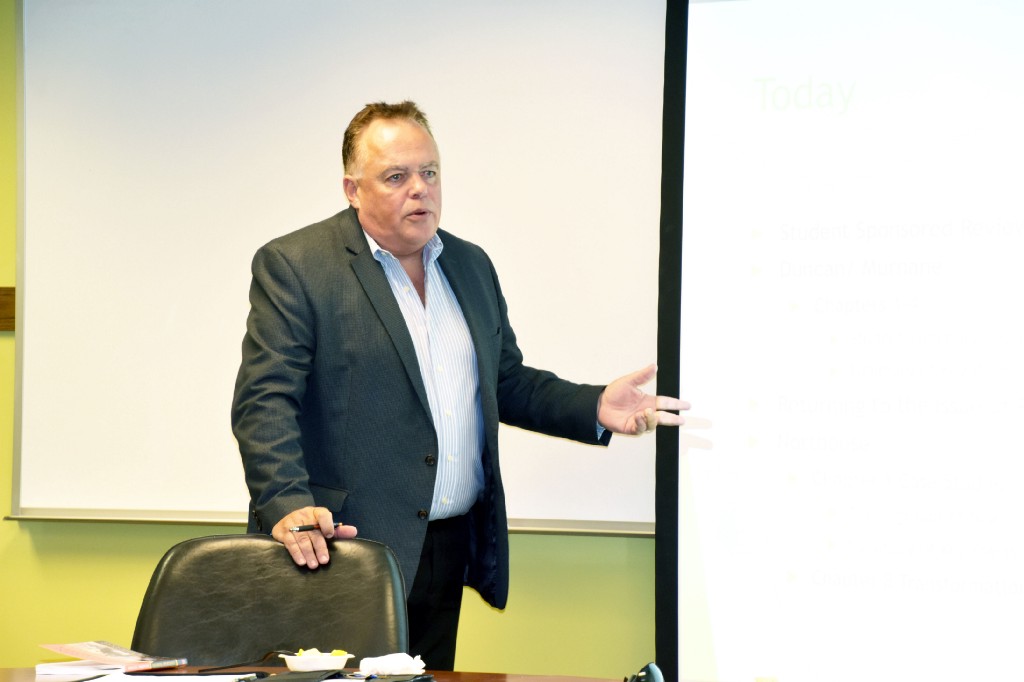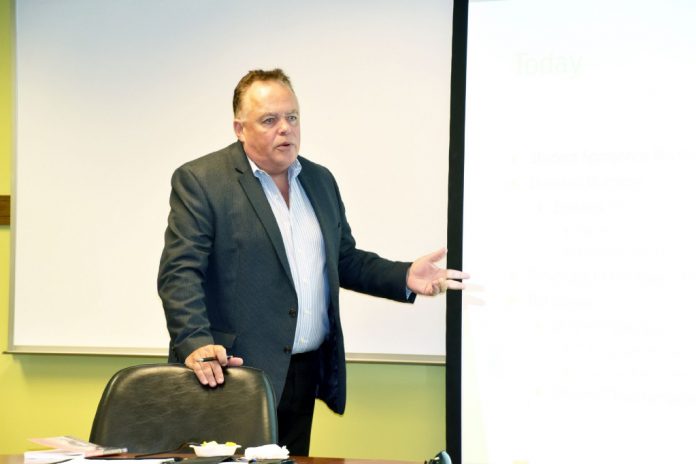Mayfair native Christopher McGinley is now a member of the School Reform Commission, among the highest-ranking educational seats in the city.

When he was growing up, Christopher McGinley said he never wanted to be an educator.
He comes from a family of Philadelphia educators — his father was a teacher and a principal, and among his father’s four siblings, three of them were also involved in education. His mother worked in the library at Frankford High School. Even his grandmother was involved, as a cleaning lady at Olney High School.
“Growing up in a family that always talked about education, the last thing I wanted to do was get involved in education,” the Mayfair native said with a chuckle.
But McGinley wasn’t able to stay away from the “family business.” He is now a member of the School Reform Commission, among the highest-ranking educational seats in the city. Mayor Jim Kenney named him to the seat in January.
McGinley has acquired more than 35 years of experience in education as a student, teacher, principal and superintendent. He attended Philly public schools growing up, starting at Hamilton Disston School in Tacony and going to high school at Abraham Lincoln.
When he entered college at Temple University, he still maintained his separation from education, beginning at the business school. But he didn’t stay away for long.
“I coached soccer, and realized I was really good with kids,” he said. “I changed my major while I was still an undergrad.”
Six months into his position on the SRC, McGinley said he has learned to separate his duties as an SRC member from his previous duties as a superintendent (he was the superintendent at the Lower Merion School District for six years).
“It’s hard for me sometimes because I still react as a superintendent,” he said. “There are some times I need to check myself and say, that’s not my role.”
McGinley also serves as a professor at Temple, teaching educational services.
Despite his familiarity with the district, he said he has been visiting at least one school a week to see what’s going on.
“I’ve worked in other districts where the resources are much more robust than in Philadelphia,” he said. “I felt one thing I needed to do was get a sense of what teachers are dealing with today, and not be the guy who says, ‘Well, back in my time.’ ”
He knew serving on the SRC would be a challenge. Going in, he was prepared to face the same criticism he himself had been dishing out.
“My grandchildren asked if I was crazy,” McGinley said of joining SRC. “But I felt I have to put up or shut up if I’m out there talking about educational issues.”
Philadelphia is unique in having a board that ranks above the School District of Philadelphia’s superintendent. The SRC is responsible for oversight and decision-making for the district on issues that mostly involve funding.
McGinley said his experience at every level of education (student, teacher, principal and superintendent) shaped his viewpoint. He’s a sturdy supporter of Philadelphia public schools.
“My experience as a student [in Philadelphia] was a mixed bag,” he said. “I had some really great teachers, but I knew what a bad teacher looked like. I always wanted to emphasize connecting with students in my classroom.”
His track record has him voting opposite the board on quite a few matters, including being the lone vote against the opening of Deep Roots Charter School, expected to develop in Kensington.
McGinley said he was excited about the change he had already seen while on the board, citing the recent deal that will allow district teachers raises for the first time in five years.
“It’s tremendously important,” he said. “A lot of teachers left for a better income, better resources and a more predictable environment. I’m very optimistic the new contract will keep good people from leaving.”
The deal will allow unionized teachers retroactive pay, and allow them to contribute a percentage of their pay to health premiums for the first time. Around 95 percent of unionized teachers supported the contract.
McGinley said contracts like this are why he’s here, and align with what he hopes to accomplish.
“Kids in classrooms don’t learn if they don’t feel safe and valued,” he said. “We need to make sure that happens. It connects back to why we need a contract for good teachers to stay.” ••





